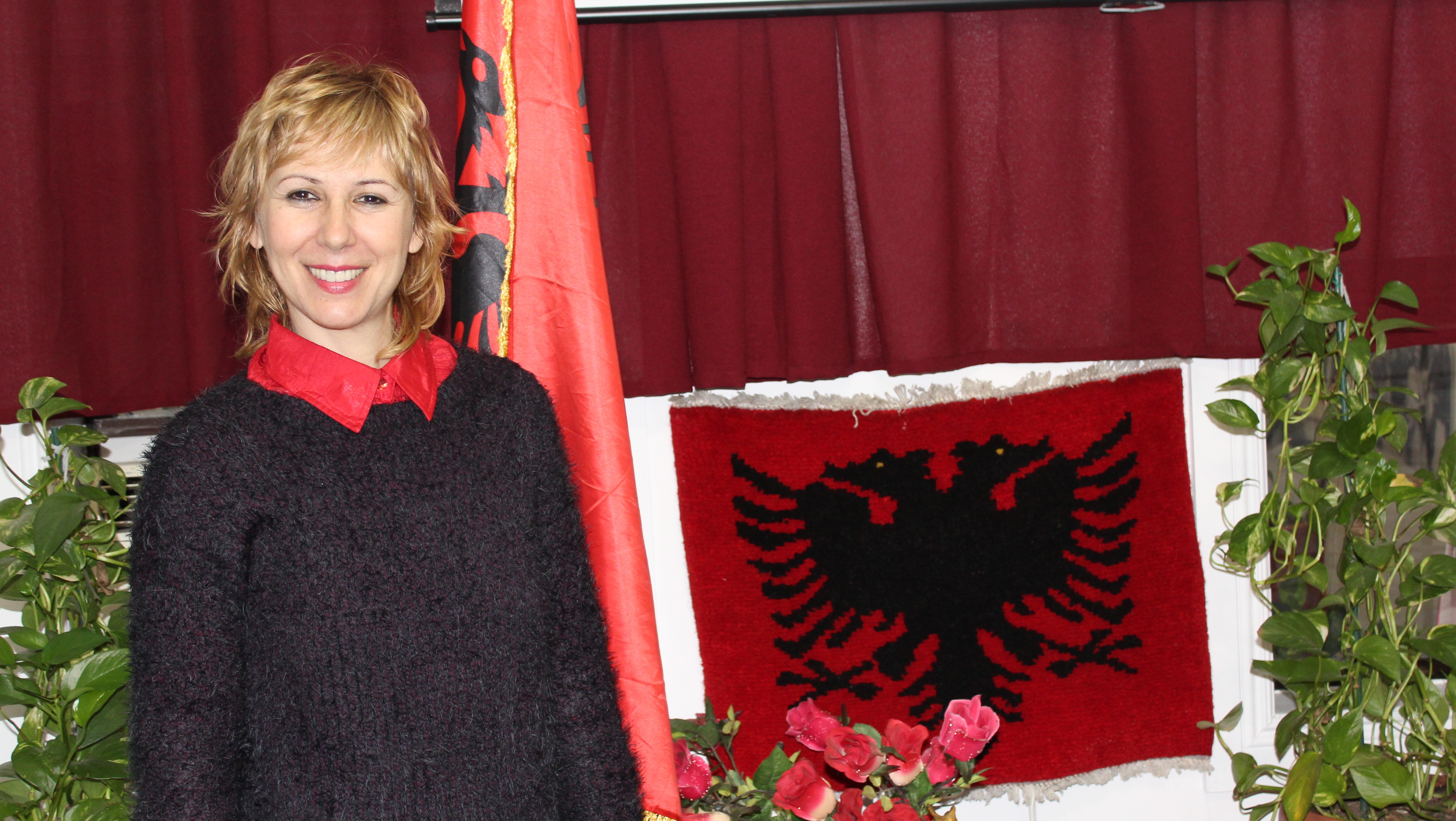
by Rafaela Prifti/
On a cold December night, a curious encounter compelled me to go the Public Theater. There, my unlikely odyssey led me to a disappointment and a discovery. Earlier that day, all bundled up, I had pulled my hood so far down my face, I had almost bumped into the standing poster on the sidewalk of Lafayette Street. Somewhat startled I stopped a few inches from hitting the side pole. I looked up and I read Illyria in big black letters. I admit that as an Albanian, I quickly identify the name with the land of my ancestors. Reacting in a stereotypical fashion, I automatically scanned the poster to see if the director, playwright or cast members appeared to be Albanian names. Nothing! The next thing I noticed was the date. Last show December 10! So it was that I returned to the theater the evening of the same day.
After being handed a headset and a playbill, I sat down and promptly started to read about the play in order to set my expectations with some caution. “Illyria -A Play in Three Scenes- Written and Directed by Richard Nelson” I turn the next page, The play takes place between April and August 1958 New York City. While still clinging to my national attachment to the name that is synonymous with Albanian heritage, I began to understand that its historical reference as well as geographical context would not be of importance! Indeed, the note by the Artistic Director, Oskar Eustis explained that Illyria pays homage to Joseph Papp, the founder of the New York Shakespeare Festival and eventually the Public Theater. A slight disappointment settles in. Admittedly, I was on a new learning ground. From the first to the last scene, the characters – all members of Joe’s crew – were intent on grappling with the challenges of keeping Shakespeare Festival alive while having to make personal choices about their careers, beliefs and family. Also in every scene, the naturalistic tone of communication among the members of the troupe contained no emotional outbursts or even the conventional projection of the actor’s voice. They simply talked and the audience listened.
And what I heard were issues of keeping art widely available to the public, dealing with commercialism and monopolization, and standing up to censorship while caring for a city that is ours, it belongs to all of us! The last scene began with Joe Papp as the troupe had just wrapped up performing Shakespeare’s Twelfth Night in the park. Sitting at the dilapidated flatbed trailer chatting with his friend, Bernie Gersten, another major real-life contributor to the city arts, Joe spoke of a dream that takes place in Illyria, the fantastic setting of Shakespeare’s comedy. The end! No climax, no resolution, no big finale!
A play about perseverance in the face of political and financial adversity, while advocating for the power of the theater as an essential cultural force! And it just may be the ‘first part’ of a bigger story. Critic Matt Windman writes that “Illyria” could conceivably act as the starting point for a series of plays depicting critical moments in the Public Theater’s history. It must be said that the outcome of Joe Papp;s vision for the theatrical landscape of the city has done well sixty years after the depicted time of the play. Shakespeare in the Park continues to be a celebrated tradition and at times thought-provoking experience, like last summer’s controversial production of Julius Caesar. The Public Theater has a year-round production schedule, and more than 300,000 theatergoers annually.
The writer and director of the play, Richard Nelson, relates that he settled on this title prompted by the description of Illyria in a letter written to Joe by an actor in the play, where he wrote: Illyria is a mythical country where strange and wonderful things happen.”
Thanks to the play, I discovered Illyria as a literary reference, and even a metaphor, if you will, for the democracy of the arts!
You are invited to share your thoughts here if you have seen the play.
